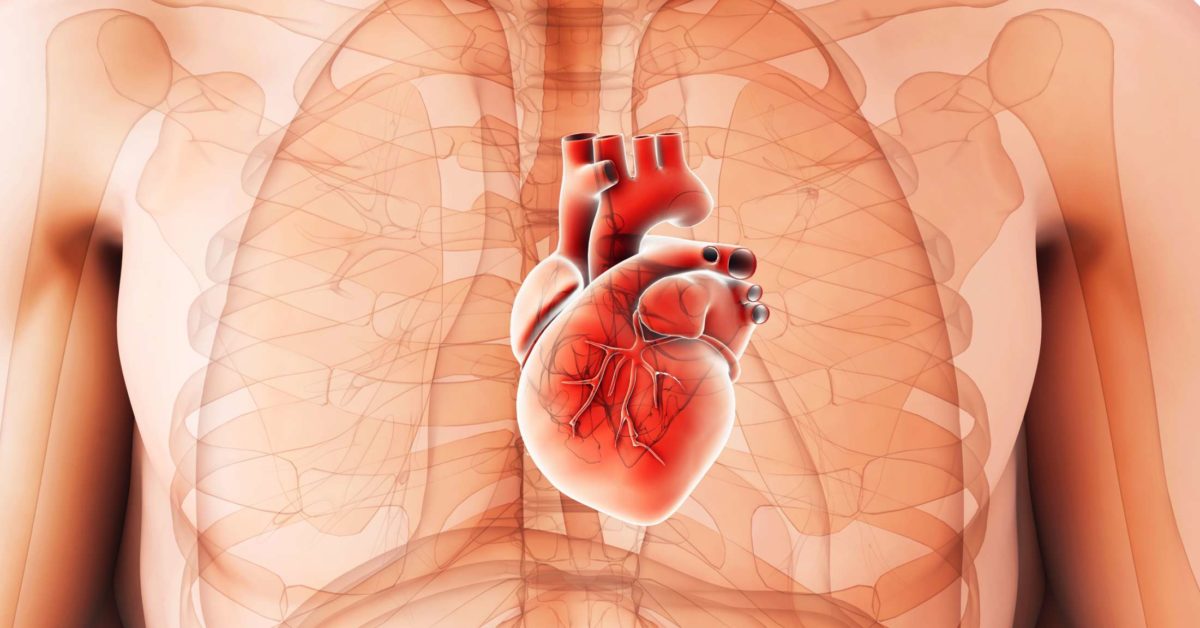The most important causes of an enlarged heart
An enlarged heart can be caused by two types of problems:
Problems related to the heart muscle itself: pathological
Overworked heart caused by physiological problems, such as high blood pressure or thyroid problems
An enlarged heart can cause the following symptoms:
The enlargement of the heart may be asymptomatic, but when it is symptomatic, it means that it can no longer pump blood to the body, resulting in congestive heart failure, whose symptoms include:
Problems with the respiratory system
Breathing problems
Dizziness
Arrhythmia (irregular heartbeat)
Rhythmic heartbeats
Fluid accumulation

How does the heart enlarge?
Coronary artery disease:
Plaque or fat buildup in one or more coronary arteries narrows the arteries, disrupting oxygen supply to the energy source or nature.
Hypertension:
Obesity and a sedentary lifestyle put excessive pressure on the arteries, which puts pressure on the heart.
Cardiomyopathy caused by idiopathic causes:
Unknown cause of myocardial infarction. Heart enlargement is one of the most common types of cardiomyopathy that causes shortness of breath and swelling of the ankles. It is rare to experience dizziness, cramping, or chest pain.
Symptoms of myocarditis:
Symptoms of congestive heart failure may first appear as a result of a viral illness.
Disorder of the heart valves:
Mitral valve problems, for example, cause blood to flow backward, forcing the heart to work harder than usual.
Disorders of the thyroid:
If left untreated, the thyroid gland can cause high blood pressure, high cholesterol, irregular heartbeats, and an enlarged heart.
The obesity epidemic:
High body fat contributes to high blood pressure and enlarged hearts.
The inability to move
High blood pressure and coronary heart disease are associated with sedentary lifestyles.
Age is high:
Our arteries become less flexible and elastic as we age. Due to this hardening of the arteries, high blood pressure causes the heart to enlarge.
An enlarged heart can be diagnosed in several ways:
Physical examination and medical history
An X-ray of your chest helps your doctor determine the size and shape of your heart and lungs.
In an echocardiogram, the sound of the heartbeat is sent to a device that converts it into an image. The doctor can then understand how the heart works based on this information.
The Doppler test determines how well the heart valves are functioning by detecting blood flow through them.
The electrocardiogram measures the electrical activity of the heart and can detect heart rhythms and previous heart attacks or ischemia.
Can an enlarged heart cause death?
What are the dangers of heart thickening? Your heart can beat faster if it is enlarged. In some cases, cardiac arrest or sudden death can result from heart rhythms that are too slow for blood flow or their heart rates are too fast.
It is possible to return to a normal heart size with proper and timely treatment. In many cases, however, this will not be the case.
Enlarged heart treatment:
Depending on the cause, treatment options may include:
Your doctor may prescribe medication if cardiomyopathy or another type of heart disease is to blame for your enlarged heart. Among these drugs are:
As sodium and water are reduced in the body, pressure on the arteries and heart is reduced.
ACE inhibitors lower blood pressure and improve heart pumping.
Taking beta-blockers lowers blood pressure and improves heart function.
Medications that prevent blood clots from causing a heart attack or stroke
You can take antiarrhythmic drugs to keep your heart rate normal
Also Read:
How can controlled high blood pressure in pregnancy?


